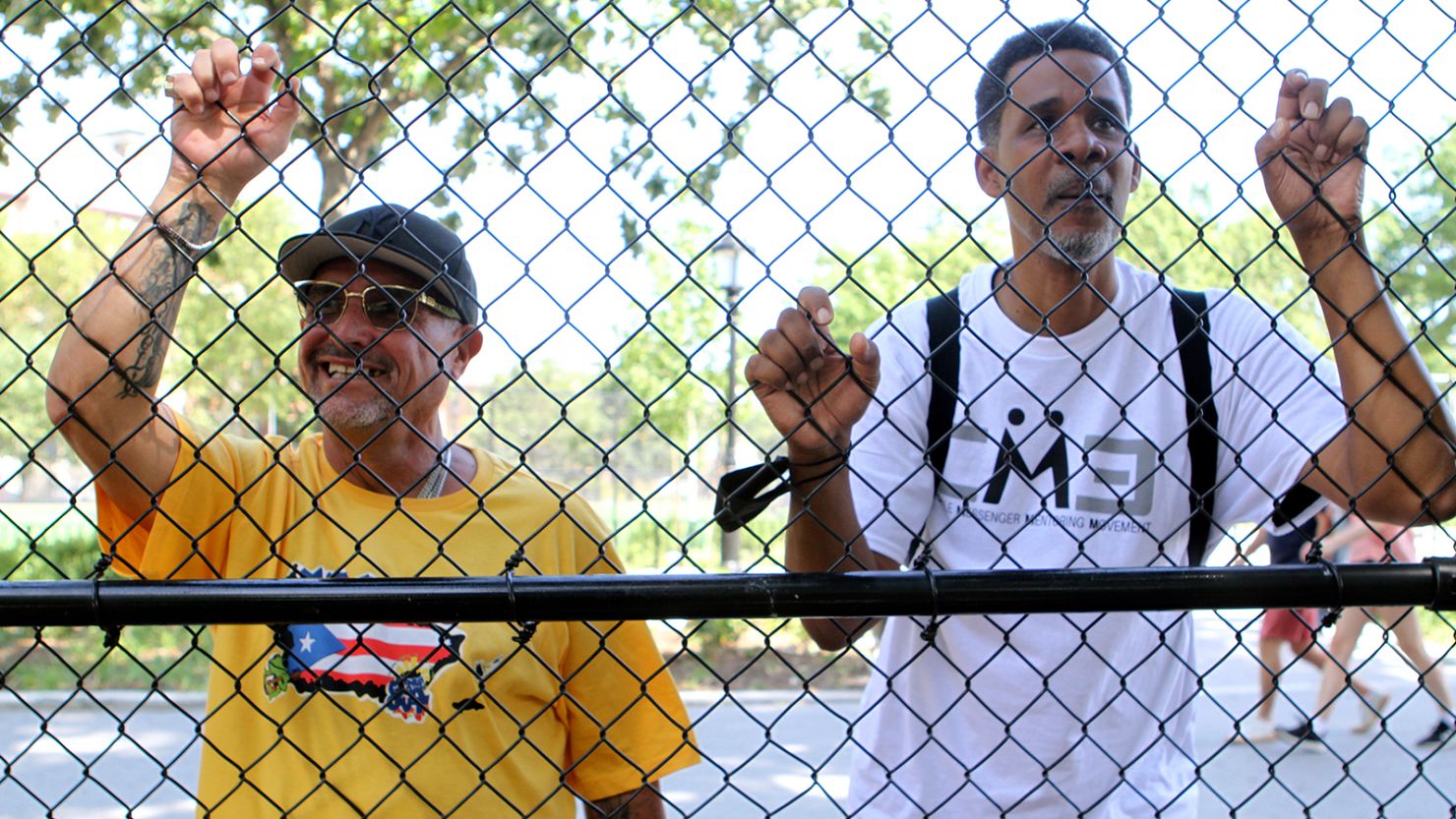Wearing the signature black and gold colors of the Latin Kings street gang he once led, Antonio Fernandez recently walked through the Maria Hernandez Park in the majority-Hispanic neighborhood of Bushwick, Brooklyn.
It is here that Fernandez, formerly known as King Tone, held gatherings for hundreds of his fellow gang members in the 1990s. On a sweltering July day, Fernandez returned to the park with a new goal: to seek out young men and divert them from the path he once travelled.
“This was the place where I practiced how to become a better leader,” said the 56-year-old Fernandez, a third generation Puerto Rican, who led the Latin Kings in New York from 1995 to 1998. Fernandez was sentenced in 1999 to 13-and-a-half years in prison after pleading guilty to conspiring to sell narcotics but served nine-and-a-half years, including three years in solitary confinement.
Fernandez approached strangers with ease, part of what he calls “mapping.” The goal, he says, is to identify young people in need of direction. He was also looking for natural leaders, adults who have the potential to mentor and youth who are experiencing challenges they once faced – poverty, violence and drug addiction.
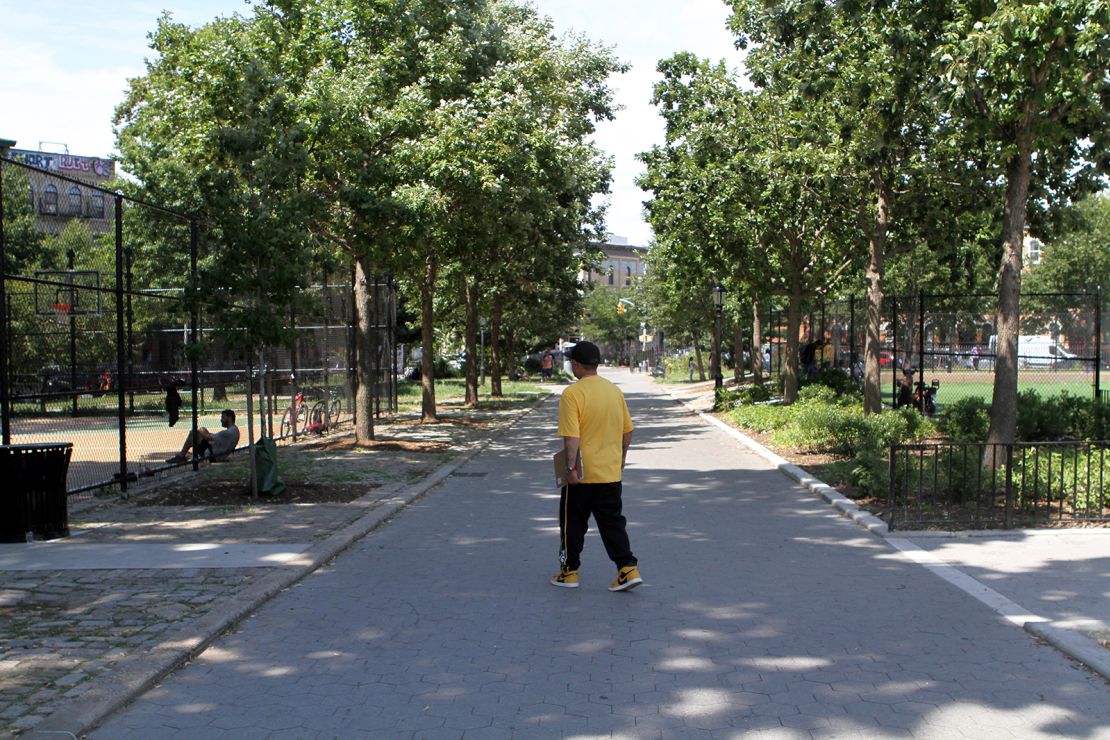
As US cities struggle to rein in the sustained rise in gun violence since the onset of the coronavirus pandemic, some officials are turning to a burgeoning intervention program known as the Credible Messenger Mentoring Movement (CM3). Fernandez is the lead national trainer for CM3, which is expanding youth mentorship and rehabilitative programs in communities across the nation most impacted by violent crime.
CM3 partners with government agencies and community groups, providing them with a model to recruit, train and deploy “credible messengers” so they can have a transformative impact on youth in the criminal justice system or at risk of incarceration. Clinton Lacey, who founded CM3 in Washington, DC, in 2021, defines credible messengers as natural leaders rooted in the communities they serve. They become “credible” by drawing on their shared life experiences in the justice system and in their communities to leverage trust and build relationships with young people and families.
“We are demonstrating that if you invest in the communities that have traditionally been seen as the source of the problem or pathology, that if you shift the focus from seeing them as negative actors who produce problems, it’s clear that within those communities are people with expertise and solutions. That’s what the credible messenger represents,” said Lacey.
Credible messengers, a term that traces back to Eddie Ellis, a former member of the Black Panther Party, have existed for decades in various forms. Ellis developed the concept while incarcerated in a New York state prison in the 1970s and 1980s for a murder he didn’t commit. He recognized that people with insider knowledge of the criminal justice system can be powerful mentors, helping to heal trauma and address the root causes of violence.
Inspired by Ellis, Lacey says that CM3’s objective is to transform systems and institutions that have “for so long acted in a racially disparate way towards Black and Brown people.”
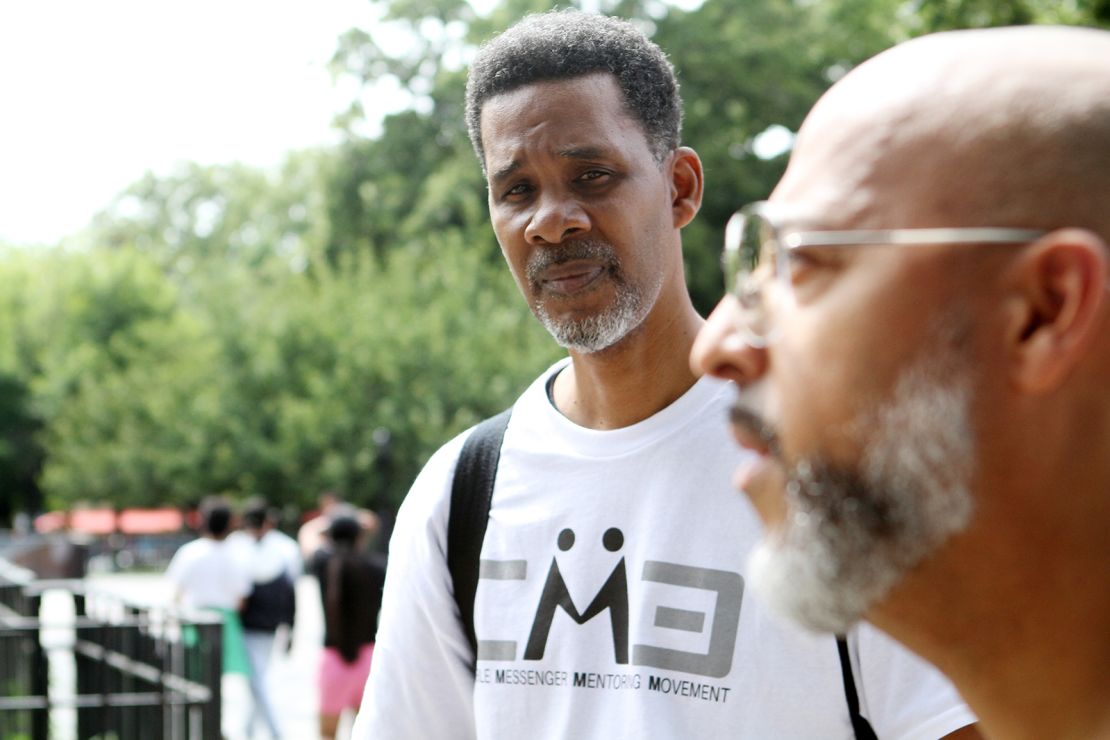
CM3 was born from the success of other credible messenger programs. One of them is Arches, which Lacey helped to establish in 2012 during his time as deputy commissioner of the New York City’s probation department. The city became the first to employ a mentoring program like Arches that connects high-risk young people on probation ages 16 to 24 to mentors with similar life experiences.
Arches proved to be highly effective in reducing recidivism rates among young people by teaching life skills, building trusting relationships and changing behavioral patterns.
In 2021, Lacey founded CM3 in Washington, DC. Central to the CM3 model is a 35-hour intensive training curriculum and a long-term commitment by credible messengers, who are expected to continue their relationships with youth and their families long after their mentees transition out of the justice system.
The training program incorporates research from both medical and mental health fields, teaching courses focused on the impact of trauma on adolescent brain development as well as crisis intervention and conflict resolution. One of the courses is titled “The Art of Science and Hope,” which is informed by Arizona State University’s Center for the Advanced Study and Practice of Hope. The institute is directed by Dr. Richard Miller, who has trained CM3 leadership on the importance of teaching hopefulness to children in encouraging them to plan for goals, future opportunities and life challenges.
Credible messengers reduce recidivism, study shows
“These kids were dealt a bad hand. A bad hand is also a system that is broken. A system that sets them up for failure,” Fernandez told a group of a dozen credible messengers gathered for a four-hour training session in July in Jersey City.
Standing alongside Fernandez, Lacey told the group, “For a system that is historically broken, what’s the alternative? We are the alternative.”
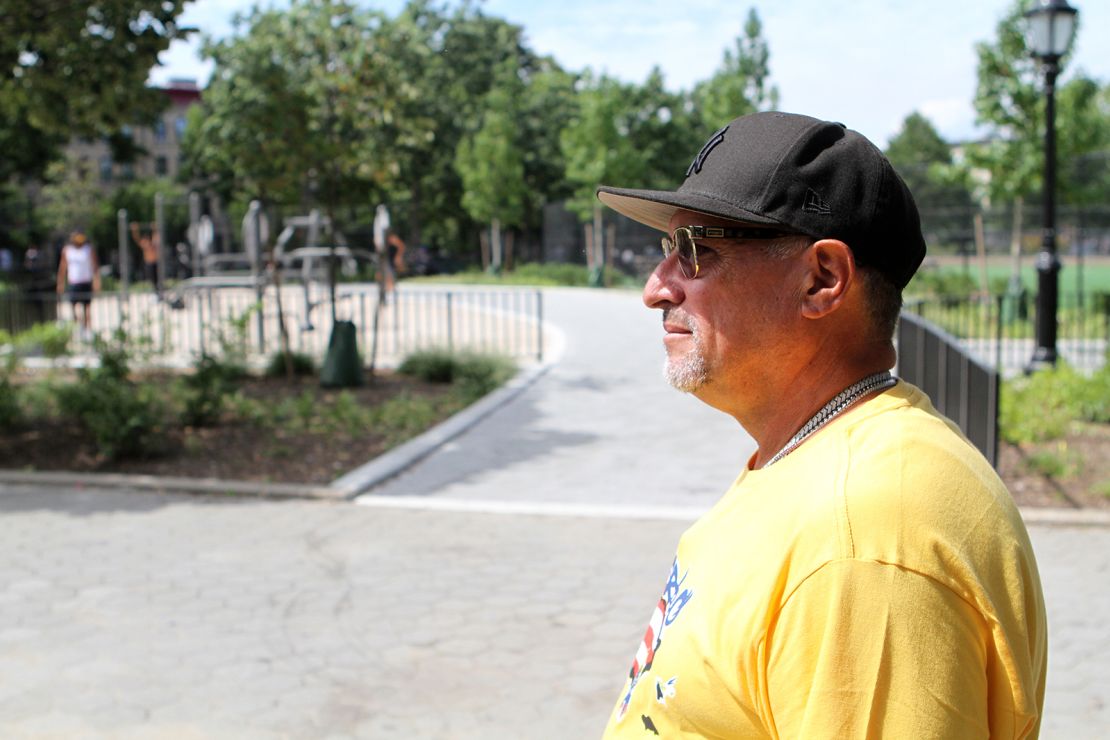
Lacey says that the credible messenger approach can change the trajectory of at-risk youths and turn communities around. New York City officials seemingly agree, bringing in CM3 leadership to join Mayor Eric Adams’ “Public Safety Transition Committee” to recommend safety actions he should take during his first 100 days in office. CM3 was also supported by Congressman Adriano Espaillat (D-NY) to receive $530,000 in federal community project funding.
Over the past year, CM3 has expanded to Jackson, Mississippi, Houston, Seattle, Orlando, Florida, Jersey City, New Jersey, and Los Angeles. Its leaders are also working to implement their program in juvenile facilities in Los Angeles County, Alameda County and South Carolina’s Department of Juvenile Justice, according to Lacey.
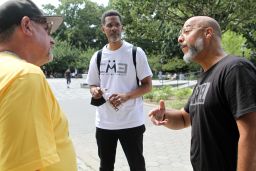
This growing interest in the program is a result of the proven success of Arches and the elements of that program that inspired the CM3 framework.
A study conducted by the Urban Institute between November 2015 and June 2017 found that Arches participants had a 69% lower felony reconviction rate within 12 months of starting probation. Within 24 months, the rate remained 57% lower than a group of young people who did not participate in the study.
The decision by New York City to become the first government agency to employ credible messengers under the Arches program is a recognition of “the national limitations that an agency like probation has in terms of reaching young people who distrust government and other entities,” and those who have been failed by other adults in their lives, said Ana Bermudez, commissioner of the New York City Probation Department, in an interview with CNN.
“This just gives us more opportunities to not lose young people to incarceration, to the streets and to be able to rechannel them and tap into their potential more effectively,” Bermudez said.
Working with the system
As the lead national trainer for CM3, Fernandez has trained staff in probation departments, courts, detention centers and other agencies which have legal authority over the young people that CM3-trained credible messengers serve.
Fernandez manages a team of CM3-trained credible messengers within a juvenile rehabilitation facility called the New Beginnings Youth Development Center in Washington, D.C., which is run by the District of Columbia Department of Youth Rehabilitation Services (DYRS).
“I do my rounds at New Beginnings every week. I see my kids, I see my staff, I make sure that everybody is accountable and is doing what was instructed,” Fernandez said.
Lacey became the director of DYRS in 2015 and helped to establish an initiative that included core features of Arches but expanded mentoring services to the families of youth as well. Like Arches, it was another program that inspired the creation of CM3.
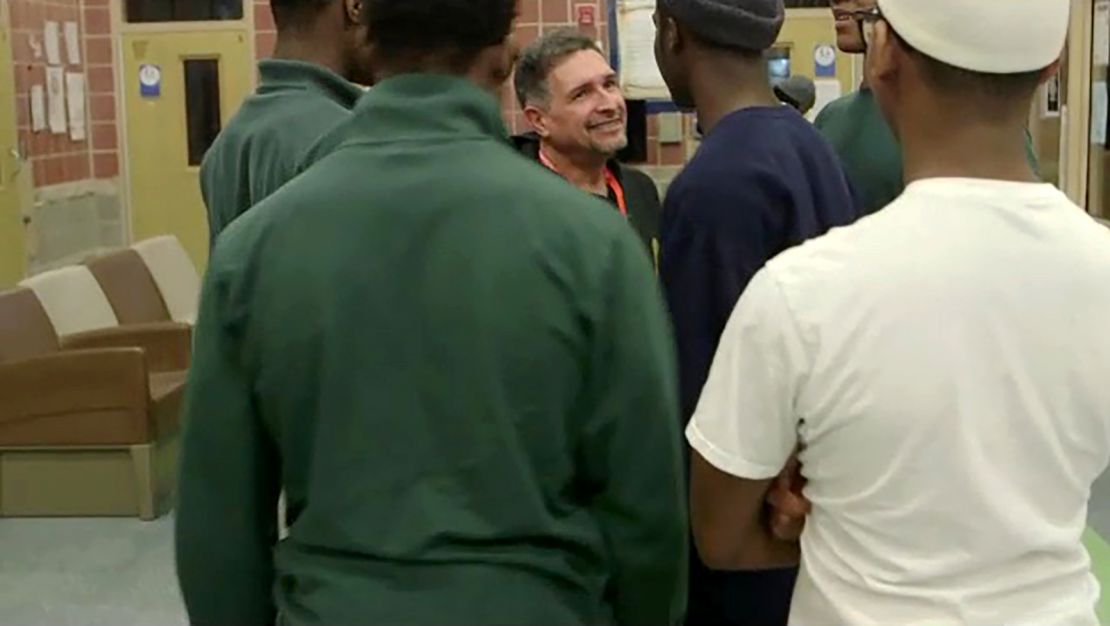
CM3’s trained credible messengers at New Beginnings participate in group counseling sessions with youth and therapists and attend staff meetings that review juvenile cases and track their progress. They work closely with facility officers, administrators and mental health staff to share insights on each case, offer solutions for a child’s rehabilitation, and participate in meetings to discuss whether a child is ready to return home.
CM3’s trained credible messengers also work with youth who are being court-supervised by probation officers as they navigate the justice process. This includes accompanying youth to court appearances, communicating with their probation or parole officer and ensuring they comply with court mandates.
Raequan McIver, 25, arrived at New Beginnings when he was 16 years old, after being charged with assault with a deadly weapon. McIver says he started acting out after he was diagnosed with learning disabilities in elementary school. His first arrest took place when he was in 9th grade, and he soon began hanging out with older kids who introduced him to firearms, he says.
McIver, who is Muslim, said his mentor first taught him about his religion and would help him read the Quran, which made him feel more comfortable to open up about his family and the struggles he faced.
“My mentor … told me about his time in jail, the harsh experiences he had encountered while in there,” McIver said. “He told me, ‘I spent decades watching my kids grow up without me. The thing I loved the most, I had to leave. Is it worth it?’”
After McIver left New Beginnings when he was 18, his mentor helped him gain financial literacy, create his resume and prepare for interviews. When he was offered a job at a local hospital, McIver’s mentor bought him clothes and transported him to work during his first two weeks until his first paycheck.
Now, McIver is a credible messenger himself.
“I can say that credible messengers impacted my life and turned me around from being a menace to now being a mentor, a big brother and a father.”
‘I didn’t have a broken home, I had a poor home’
Fernandez, who grew up in a Catholic family in East New York with four sisters, said he “didn’t have a broken home, I had a poor home.” His father worked over 12 hours every day, which allowed Fernandez to roam the streets. He says that freedom led him on a path to selling drugs at a young age.
Fernandez joined the Latin Kings gang when he was 19 years old while he was serving time in Rikers Island prison for drug possession. Members of the gang who were in prison with Fernandez taught him about his Puerto Rican heritage and how to read.
“I found healing in the place where I had the most trauma of my life,” he said. “It really confused me that I found healing in the jail and not in school, not in my own neighborhood.”
When Fernandez left prison in 1992, he says he was intent on reforming his fellow gang members. He wanted to engage them politically on issues important to Hispanic communities. While many of his gang members supported his mission, others resisted and decided to leave.
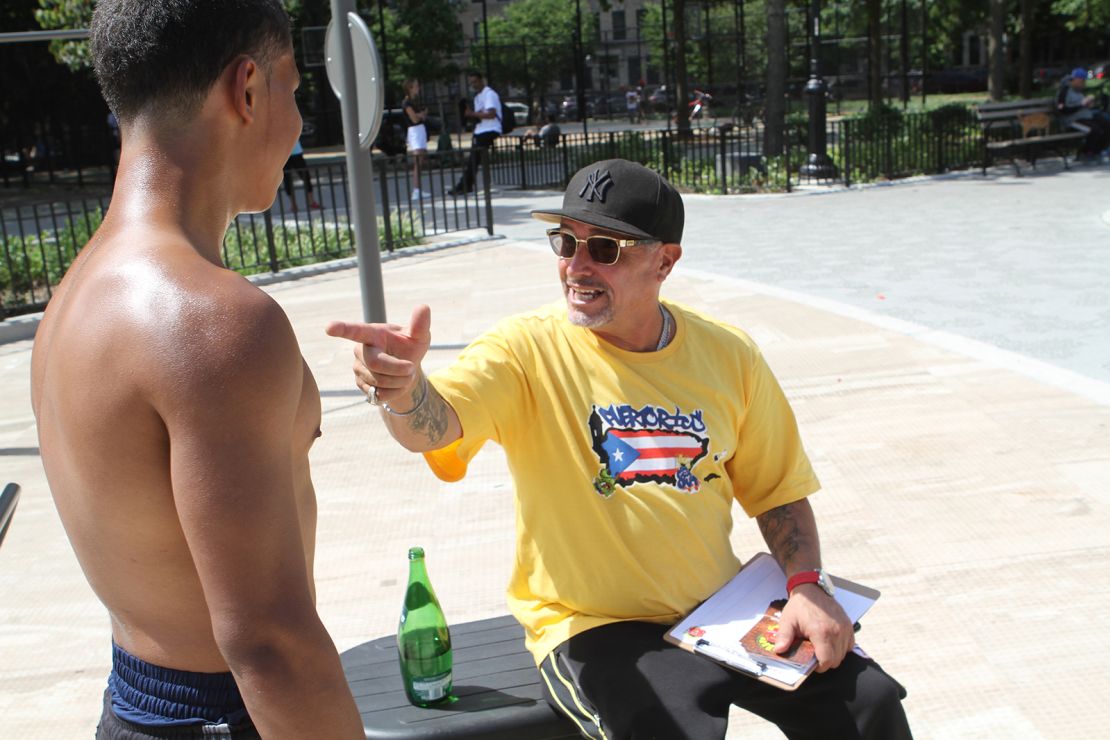
Fernandez believes that if young people have support systems that relieve the oppression they face, their aggravation that leads to violence starts to diminish.
“If he never felt understood or loved, now he knows it because you relieve him – you give him mental health services, shelter and food,” he said.
While at Maria Hernandez Park, Fernandez walked up to a teenage boy who was doing pull-ups at the park gym. With a big smile on his face, Fernandez gave him his business card and encouraged him to reach out if he “ever needs anything.”
“You see, I’m comfortable talking with strangers,” he said. “That’s what I practice, being able to talk to kids and engage with them. That’s where I’m comfortable the most. That’s just my reality.”
